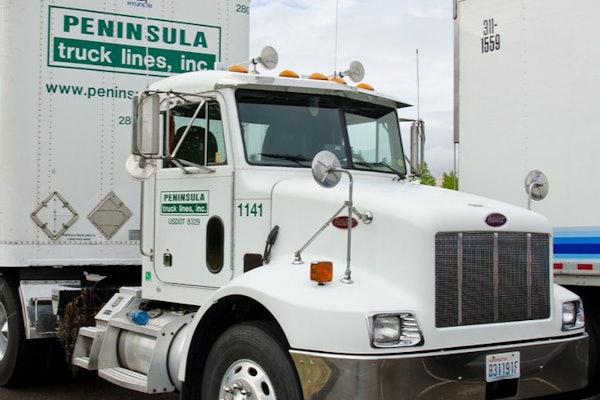Bill Graves, American Trucking Associations president and chief executive officer, and ATA Chief Economist Bob Costello discussed the trucking industry’s commitment to highway safety as well as the industry’s 2006 economic outlook at the Food Shippers of America annual conference held Monday, Feb. 20 in Orlando, Fla.
Speaking as part of a highway panel, Graves told participants that ATA’s recent call for reduced truck speeds through maximum speed governing of 68 miles per hour was part of a comprehensive trucking industry highway safety initiative that has produced a record-low large truck fatal crash rate. “Remarkably, this record-low improvement in the fatal crash rate comes despite an increase of more than 6 million registered vehicles on the road over the previous year,” Graves said. “It shows a continuing improvement in U.S. highway safety within the trucking industry and among our professional drivers.”
Other ATA safety initiatives include a call for universal primary safety belt laws in the 50 states and increased enforcement of traffic laws against unsafe driving actions around large trucks. ATA also expressed its conditional support for a federal regulation requiring the use of electronic onboard recorders to document driver compliance with work and rest rules.
Costello told conference attendees to expect good economic growth for 2006, although it could be slightly smaller increases than in 2005. Costello presented a positive outlook for the U.S. economy and the trucking industry in terms of freight volumes and overall manufacturing output during the year. “Capacity within the trucking industry will remain tight, especially during peak volume seasons,” he said, noting that manufacturing output and business investment were “two of the bright spots” in the 2006 economy.
“Solid retail sales during January, among other key indicators, should result in robust top-line economic growth during the first quarter of this year as well,” said Costello, who added that the supply/demand mix in the trucking industry should continue to tilt toward motor carriers during the year.







